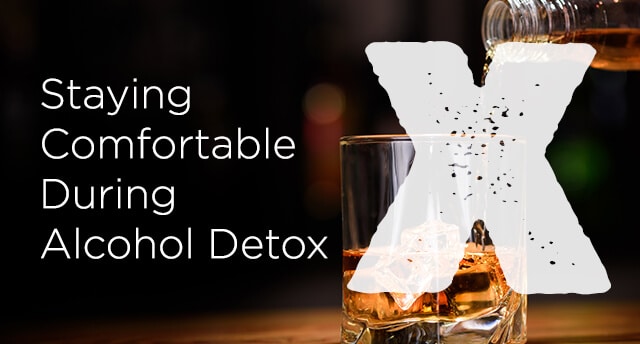If you are daring to stop using drugs or alcohol, you are daring to believe there is something better out there for you.
It is a huge leap of faith to give up something that has so consistently given what you’ve asked of it: ease of mind, release of tension, the illusion of no responsibilities, justification to escape from the troubles the world has unjustly stowed upon you. . .
Of course, alcohol is consistent on the other end, as well: hangovers, neglected commitments, forgotten conversations, poor health, maiming motivation. . .
To be open to the possibility that something better awaits can be a terrifying proposition.
Many of the clients we serve at the Coleman Institute express fear about uncovering who they are without alcohol. The choice to have an alcohol detox and stop drinking opens the door to uncomfortable possibilities such as boredom, painful thoughts, difficult memories, and raw emotions.
This is why at the Coleman Institute, when a person goes through an alcohol detox, we assist them to have a solid plan going forward. In our experience, there’s so much wisdom in finding a 12 step program, attending an intensive outpatient group or individual counseling. Each of these approaches helps the brain re-forge new pathways for living a life that serves what one values.
At the Coleman Institute we offer a safe and confidential setting for our medically assisted alcohol detox for people who drink enough that it may be physically dangerous to simply stop. If you are unsure about how safe it is for you to stop drinking abruptly, it’s a good idea to discuss this with your doctor or call our office. A history of DTs or seizures after stopping drinking or drinking in the mornings to quiet down a tremor generally qualifies a person to have a medically supervised alcohol detox.
During our detox, we provide medication throughout the day to keep our patients safe and comfortable. Our patients’ heart rate, blood pressure and respirations are continuously monitored. We check liver and kidney function through the office lab. We look after our patient’s support person, as well, providing lunch and opportunities to ask questions and discuss the next steps for treatment.
Life’s problems don’t go away after this, but eliminating the alcohol creates the possibility for bringing clarity and effective coping and problem solving to the table.
Now, finally, there is space for things that really matter.
Joan R. Shepherd, FNP


